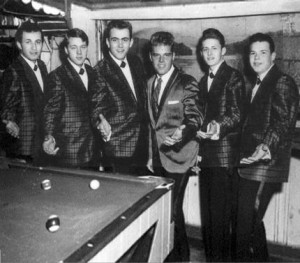In my look earlier this week at Ssgt. Barry Sadler’s 1966 hit “The Ballad of the Green Berets,” I noted that as the record climbed the charts and sat at No. 1 for five weeks, I liked it. But I may have inadvertently left the impression that I still do. I don’t, and I haven’t liked it or what it represents for a long, long time. And a comment about the record from a Facebook friend this week got me thinking about how that shift came to be.
I was twelve when the record came out, and I was just beginning the process of figuring out what was going on in the world around me and how I felt about those things. Most of those things were much closer at hand than the war in Vietnam, things like seventh grade math and girls. But I was also, as Thursday’s post indicated, reading newspapers and listening to news reports about events going on in the larger world and beginning to form, I guess, the ideals and principles that I’ve carried – or that have perhaps carried me – in the fifty years since. And among the things I pondered was the war in Vietnam.
As I wrote this week about my twelve-year-old self, “How much did I grasp about the war? Well, more than my classmates, certainly, and probably as much as many adults. . . . I believed what I read in the papers and heard on TV about Vietnam, as did, I think, my parents and all the other adults in my life. It would take a few years before we would realize that our government would lie to us.”
Over the next few years, I did figure out – as did many others in the U.S. – that our government was lying to us about Vietnam (and about many other things as well). And as I realized that, my thoughts and feelings about that war (and a lot of those other things) changed radically. As regards the war specifically, another impetus toward a changed attitude came on a sunny Saturday in 1969 when my sister’s boyfriend came home from Vietnam severely wounded and fundamentally changed; at the same time, that boyfriend’s best friend came home, as Country Joe would say, in a box. That was when, to adapt somewhat a 1960s trope, the political became personal.
And I imagine that if I’d ever thought about Ssgt. Barry Sadler and “The Ballad of the Green Berets” between that day in 1969 and the moment this week when I noted that it had been No. 1 fifty years ago, I’d have dismissed it as a bit of pop culture ephemera that offered a glorification of the war and of unthinking militarism that I rejected long ago.
So why did I write about Sadler and his record this week? Because they’re part of our musical and cultural history, and one of the things I try to do here is connect that history with the present. I perhaps didn’t do a very good job of that in my earlier post. I likely should have written – as I have here – about how my views of the record and the things it represents changed in the years that followed.
Thinking this morning about those changes brought to mind a song I still do like, one written and recorded by the late Phil Ochs in 1966, the same year Sadler’s record went to No. 1. It’s a song that’s been recorded numerous times over the years. One of my favorite versions, also from 1966, is by Julie Felix, an American folk singer whose long career has been based in Britain. So here (with guitarist John Renbourn evidently lending a hand) is Felix’s version of “Changes,” today’s Saturday single.
